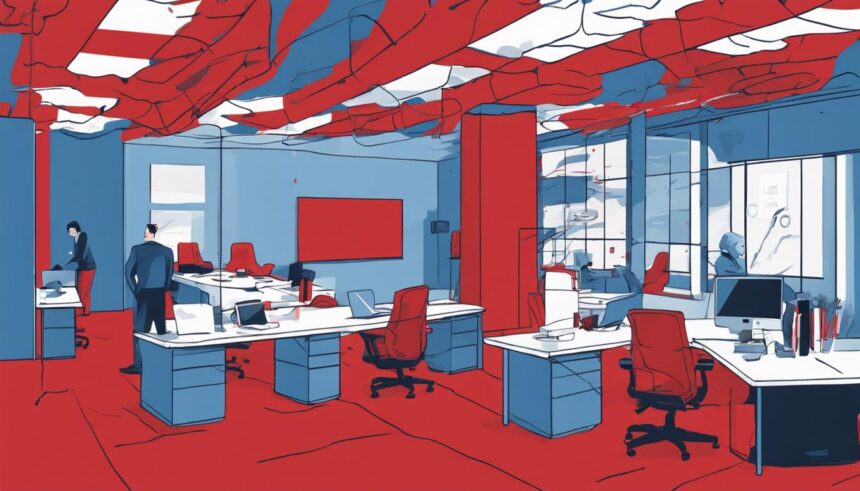A recent study by HR technology firm HiBob uncovers the complexities of political discussions in the US workplace, revealing a growing tolerance for differing political views among employees and the nuanced impact on workplace dynamics and career decisions.
Amid evolving sociopolitical landscapes and looming presidential elections, a recent study by HR technology innovator HiBob has shed light on the nuanced dynamics of political discourse in the United States workplace. The 2024 Sociopolitics in the US Workplace study explores how political affiliations and discussions impact employment decisions, revealing that while employees are increasingly disinclined to leave their jobs over political disagreements, the topic still significantly influences workplace harmony and individual career choices.
One of the key findings from the report is a marked increase in tolerance among employees towards differing political stances within their workplace compared to last year. Around 60% of the workforce expressed that they would not resign from their positions due to conflicting political views, indicating a notable rise from the 46% reported in 2023. This shift suggests a growing acceptance of diverse opinions or perhaps reflects a resignation to the ubiquity of politics in every facet of life, including the workplace.
However, the inclination to avoid entering a working environment that openly opposes one’s political beliefs has seen an uptick, moving from 39% in 2023 to 44% in 2024. This sentiment is more pronounced among male employees (49%) compared to their female counterparts (37%), and is particularly strong among younger workers, who, despite their reluctance to accept positions at companies with divergent views, are less likely than older employees to leave a company for the same reason.
A significant majority of workers, 77%, now express a preference for steering clear of political debates at work, a substantial increase from 61% the previous year. This preference extends to the digital sphere, with 81% of employees advocating for keeping company digital communication channels politics-free, up from 66% in 2023. Despite a general consensus on avoiding political debates, a noteworthy 58% of respondents support encouraging discourse within the workplace, indicating a complex interplay between the desire for open dialogue and the need for a neutral, inclusive work environment.
The study also highlights considerable apprehension among employees about the repercussions of sharing political opinions, especially with managers. A full 50% of respondents fear that voicing their political views could jeopardize their job security and workplace relationships – a significant increase from 42% in 2023. This concern extends to interactions between colleagues as well, with 61% hesitating to share their political views, up from 50% the previous year.
Interestingly, the expectation for companies and their CEOs to remain apolitical remains strong. Over half of the respondents (51%) prefer CEOs not to express political opinions publicly, and 34% believe companies should adopt a neutral stance on sociopolitical matters. This sentiment underscores a complex balancing act for businesses striving to navigate the currents of political expression and affiliation without alienating segments of their workforce.
The insights from HiBob’s study reveal an evolving workplace landscape where political neutrality is prized, yet the desire for authentic expression persists. As Ronni Zehavi, CEO of HiBob, points out, there is a clear demand for organizations to cultivate an environment that aligns with employees’ personal beliefs while fostering respectful, inclusive dialogue. In the face of these findings, it becomes incumbent upon leaders to adeptly manage the sociopolitical complexities influencing workplace dynamics, ensuring that differing political views do not impede talent acquisition, culture, and engagement. As businesses and employees alike navigate these choppy waters, the principles of inclusivity and respect for diverse opinions appear more crucial than ever.





